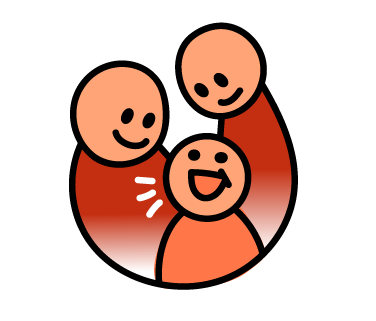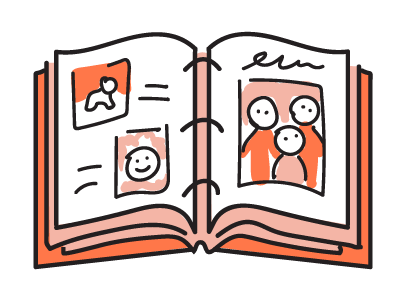Digital ‘Scrapbooking’ for Science
Researchers Seek Insight into How Social Distancing, School Closings are Affecting Children’s Language Learning
Juggling work Zoom calls with online classroom schedules while finding creative ways to keep kids busy without playgrounds, playdates or extracurricular activities: This is what daily life has been like for many families during the COVID-19 pandemic. Researchers from the University of Maryland (UMD) and Boston College (BC) are now trying to understand how these disruptions are affecting millions of families and the way they communicate with one another.
Through a National Science Foundation Rapid Response Research grant, Yi Ting Huang, associate professor of hearing and speech sciences at UMD, and Joshua Hartshorne, assistant professor of psychology at BC, are studying how the coronavirus crisis is altering children’s language learning environments across all 50 states and spanning various social and economic backgrounds.
“Families are facing enormous stress right now, and this changes how we interact with each other,” Huang said. “If we understand the different ways in which this crisis is impacting families more precisely, we can develop better ways to support parents and children. Once we realized that our labs were shuttered, we needed to figure out creative ways to reach families.”
 Through a new website and mobile phone application launched June 9, Huang and Hartshorne are asking parents with children aged 1 to 8 to sign up to be “citizen scientists.” This includes making short audio recordings of interactions with their children—a “digital language scrapbook” of sorts—as well as completing short, routine surveys about their families.
Through a new website and mobile phone application launched June 9, Huang and Hartshorne are asking parents with children aged 1 to 8 to sign up to be “citizen scientists.” This includes making short audio recordings of interactions with their children—a “digital language scrapbook” of sorts—as well as completing short, routine surveys about their families.
“It's the first web-based platform for collecting language samples from families, which are usually conducted through specialized equipment in labs or homes,” Huang said. “Leveraging mobile phone technology to enable parents to collect speech samples from their own children will not only increase the amount of data we’ll have on child development, but also allows us to reach broad and diverse populations that are hard to reach with in-lab research.”
Over the coming months, the researchers aim to collect data from hundreds of thousands of families from all walks of life and from all over America, and to eventually build a database representing 6 million families.
 “A lot of parents are concerned that being away from school and peers will negatively affect their kids’ development,” Hartshorne said. “But the truth is, we don’t know. The effect could be small. It could be huge. There could be none at all. The only way we can find out is to measure.”
“A lot of parents are concerned that being away from school and peers will negatively affect their kids’ development,” Hartshorne said. “But the truth is, we don’t know. The effect could be small. It could be huge. There could be none at all. The only way we can find out is to measure.”
The scientists will analyze the speech of children and families across the country to identify the impacts, if any, of different COVID-19 policies, such as social distancing, school closings and economic stimulus checks. This will help policymakers mitigate those effects.
The long-term impact of the work goes beyond the present pandemic, the researchers say.
“COVID-19 is a once-in-a-century event, but the next century is coming,” Hartshorne said. “Regional crises like natural disasters and wars cause similar social and economic disruptions. The more we understand how this affects children, the better we can plan.”
To sign up, parents can download the app at https://kidtalk.app. Participating families choose the level at which they would like to be engaged, from a few minutes to a few hours each week. Families can also decide how much of their recordings, transcripts and survey responses they want to share with researchers, and have the option to share their scrapbook with friends and family members as well.
Published on Tue, Jun 9, 2020 - 8:42AM



